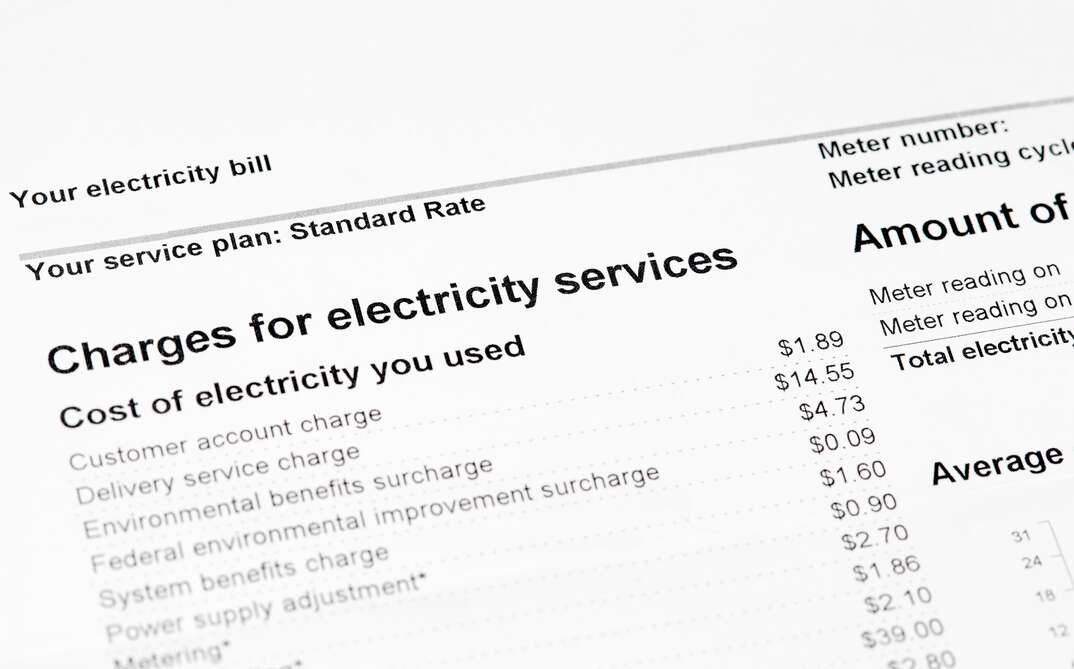- AppliancesElectriciansHVACLandscapingLocksmithPest ControlPlumbingRenovationRoofingT V RepairAll Home Improvement
- Car AccidentClass ActionCorporate LawCriminal DefenseDivorce LawEmployment LawFamily LawFinancial LawLegal AidMedical Injury LawyersMedical MalpracticeReal Estate LawWater Fire RestorationAll Legal
- InvestmentRetirementAll Finance
- Animal InsuranceAutoGeneral InsuranceHealth PolicyHome RentersAll Insurance
- DentalHealth SpecialistsAll Medical
- Animal CareVeterinaryAll Pets
- Auto GlassTowingAll Automotive
Why Is My Electric Bill so High?

When you’re trying to be responsible with your personal finances, and your monthly bills vary, it can be difficult to get a handle on budgeting. A difference of a hundred — or even just dozens — of dollars can make a difference.
So, when you receive an especially high monthly electric bill, it can throw off your financial planning. And getting a high electric bill can be annoying and worrisome, and it may leave you asking yourself how on earth this happened. Here are some potential answers that may explain why your power bill is so high.
While electric bills can be high for a wide variety of reasons, some common culprits are described below — along with potential solutions for the issue.
Legitimate Increased Usage
If your electricity bill is suddenly skyrocketing, take a realistic look at the way you use power in your home. Are you leaving lights on more often than you used to? Have you had a change that requires you to run the washing machine more often in the week, such as the birth of a new baby? Did a warm spell have you setting your heating and cooling system to an uncharacteristically low indoor temperature? Or has someone in your home developed a new habit of lengthy hot showers?
These are all examples of activities that can drive up your electric bill in a single month. If you can answer yes to any of these questions — or questions like them — and you want to reduce your energy bills, you may need to reduce energy consumption in your home. Examples of ways to do this include:
- Not running the washing machine or dishwasher until it's full
- Keeping HVAC systems on more efficient settings
- Lowering the temperature for water heaters or setting alarms to limit the time you're in the shower
- Turning off lights and appliances when you're not using them
Poor Appliance Efficiency or Faults
Sometimes, a high electric bill can be blamed on the efficiency of your appliances. If your oven, dryer or other appliance is struggling to do its job, it may draw more energy than necessary. Make sure to maintain your appliances in good working order. Take time to clean out lint filters, replace bulbs with energy-efficient products and check appliance settings to ensure they're on the most efficient option.
A faulty HVAC thermostat can also lead to extra energy use. If the unit thinks it's 75 degrees when it's only 70 degrees, it may keep working to cool a room that's already cool enough.
Faults in the Meter or Reading
Errors in the meter reading or a fault in the equipment can lead to a false reading. Look at the details of your statement to see if you've been charged for more kilowatt-hours (kWh) than normal. If you can't account for the extra energy use, it may be an error.
Changes in Supply and Demand
In some cases, your energy bill costs go up because of changes in supply and demand. The energy company may raise prices in an effort to organically reduce energy use when demand is set to outpace supply.
More Related Articles
- How Do I Tell If an Electrical Issue Is Serious?
- Can One Bad Outlet Affect Others?
- How to Reset a GFCI Outlet
- What’s in My Electrician’s Van?
- 7 Ways to Save on Your Electric Bill
Can You Dispute a High Electric Bill?
If your electric bill is too high due to a fault in the meter or a reading error, you can dispute it. Contact your electric company to find out the process for disputing your bill.
If it's high due to another reason and you can't pay it right away, look for payment plan options or a customer service phone number on your bill. Most electric companies offer options to help customers ensure their bill is affordable or catch up on a bill over several months.
Elocal Editorial Content is for educational and entertainment purposes only. Editorial Content should not be used as a substitute for advice from a licensed professional in your state reviewing your issue. Systems, equipment, issues and circumstances vary. Follow the manufacturer's safety precautions. The opinions, beliefs and viewpoints expressed by the eLocal Editorial Team and other third-party content providers do not necessarily reflect the opinions, beliefs and viewpoints of eLocal or its affiliate companies. Use of the Blog is subject to the
Website Terms and Conditions.The eLocal Editorial Team operates independently of eLocal USA's marketing and sales decisions.

